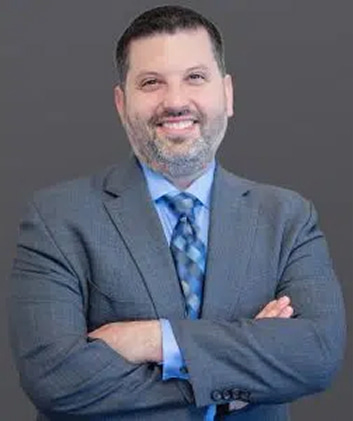Summary:
In Florida, a power of attorney (POA) usually doesn’t need to be recorded unless in real estate transactions. Recording becomes necessary to provide legal notice and authority to third parties. Even when not required, recording can still offer added protection and clarity for financial institutions or agencies dealing with the agent.
A power of attorney can be one of the most effective tools in your estate plan. It allows someone you trust to act on your behalf while you’re still living.
Florida law outlines when it requires these documents for recording. The need often depends on how to use these documents, especially when real estate is involved.

When Does A POA Must Be Recorded In Florida?
Florida Statutes (Chapter 709) draw a clear line on when you must put a power of attorney on record. Recording typically isn’t required for general financial use.
Real Estate Transactions Require Recording
You must record a durable power of attorney used to buy, sell, or mortgage real estate. It happens with the clerk of court in the county at the locality of your property. It applies under Florida Statutes § 709.2106 and § 709.2105, which govern the execution and acceptance of POAs.
For example:
- If your agent is refinancing your home on your behalf, you must record the POA with the deed or mortgage documents.
- If your agent is transferring title to a buyer, recording ensures the county clerk sees them as having legal authority.
Recording provides public notice that the agent has valid authority to act, preventing fraud or title challenges.
Banking & Financial Uses Do Not Require Recording
A power of attorney used to access bank accounts, file taxes, or manage investments doesn’t need recording. Banks or brokerages may require a copy or certification, but not a formal public recordation.
Many institutions ask for the original POA or a copy signed within six months to verify that it’s still valid and accepted.
Key takeaway: In Florida, recording is only mandatory when the POA is used to sign real estate documents that must be recorded themselves.
Now that we’ve covered where recording is legally required, let’s look at the difference between durable and non-durable POAs—and why that distinction matters.
Durable Vs. Non-Durable Power Of Attorney In Florida
Both durable and non-durable POAs can grant decision-making authority, but only the durable version stays valid if you become incapacitated.
What Makes A POA “Durable”?
Florida Statute § 709.2104 requires specific language. The document must state that it is not affected by the principal’s incapacity. Without this language, the agent’s authority automatically ends if the principal becomes mentally or physically incapable.
Why “Durable” Matters
Durability does not directly affect whether you record the POA or not. However, when used for real estate or long-term financial decisions, a durable POA is typically the better choice.
For example:
- If you become incapacitated and your agent needs to sell your home, only a durable POA allows them to proceed.
- If it’s not durable, they must go to court to become your guardian—a slower and more expensive process.
Note: Durable POA + Real estate use = Recording required.
Let’s now explore situations where recording might be wise even if it’s not legally required.
When Recording A POA Is Recommended (But Not Required)
Even though recording isn’t always mandatory, it may still help avoid practical roadblocks. Think of it as an added layer of protection for the agent and the institutions they deal with.
Benefits Of Voluntary Recording
Here are some cases where you might want to record a POA in Florida, even if the law doesn’t force you to:
- Multiple agents or backup agents: Recording helps clarify the chain of authority.
- Using the POA out-of-state: Other states may require or expect a recorded copy.
- Transactions involving trusts or large sums: Third parties feel more secure relying on recorded authority.
Recording can also help preserve the original. When recorded, you can obtain certified copies later, even if the original gets lost.
Who Can Record The POA?
In Florida, either the principal or the agent can record the document. Recording is done through the county clerk’s office, and typically costs about $10–$20, depending on the length.
Still unsure when a POA ends or gets revoked? Let’s walk through how Florida treats expiration and revocation.
How & When A Power Of Attorney Ends In Florida
A Florida power of attorney isn’t forever. The law sets out clear circumstances that automatically end the agent’s authority. Once a POA ends, any action taken by the agent afterward may be legally invalid and expose them to personal liability.
POA Ends When:
| Event | Applies to All POAs | Only Non-Durable POAs |
| The principal revokes it. | ✅ | ✅ |
| The principal dies. | ✅ | ✅ |
| The court appoints a guardian. | ✅ | ✅ |
| The principal becomes incapacitated. | ❌ (if durable) | ✅ |
Revocation can be written or oral, but banks and agencies usually require a signed notice. Once revoked, you should notify anyone who might rely on the POA (e.g., title company, bank, insurance).
Florida law also allows you to limit the POA by date or purpose. For example, it can expire after selling one piece of property or after a medical event.
Now, let’s look at what makes a Florida POA legally valid, because improper forms can delay or derail your intentions.
Legal Requirements For A Valid POA In Florida
Not all powers of attorney are created equal. To ensure enforceability, Florida requires certain elements to be in place. Improper execution can result in banks, hospitals, or title companies rejecting the document entirely.
Core Legal Requirements
According to Florida Statutes § 709.2105:
- The POA must be signed by the principal.
- The principal must sign in front of two witnesses and a notary public.
- The agent must accept the role before acting.
You should use Florida-specific forms, especially since older or out-of-state templates may not comply with current law.
Some transactions require specific grants of authority. For example:
- To make gifts, the POA must say so explicitly.
- To create or amend trusts, it must name that power directly.
With all this in mind, it’s wise to revisit how these rules apply in real-life scenarios.
Common Scenarios Involving POA Recording In Florida
Different legal situations call for different rules about recording a power of attorney in Florida. These common scenarios show when recording is necessary, optional, or simply the more strategic choice.
Here’s how the rules play out in real-world Florida planning:
Scenario 1: Selling A Home For A Parent
You’re using a durable POA to help your aging mother sell her house. The POA must be recorded in the county where the home is located, along with the deed.
Scenario 2: Accessing Investment Accounts
You’re managing a friend’s brokerage account. The institution asks for a certified copy, but no recording is needed. The financial institution may also require the POA to include specific language authorizing investment decisions or trading activity before granting the agent full access.
Scenario 3: Managing Property Across Counties
If the POA is used in multiple counties (e.g., selling property in both Palm Beach and Broward), you’ll need to record the POA in each applicable county.
Scenario 4: Protecting A POA From Future Disputes
To avoid having to prove the POA’s validity later, you record it even though it’s not required. That way, banks or realtors can’t challenge it due to age or form.
Lastly, what if you’re the agent holding the POA? You may wonder how to prove your authority without hassle.
How To Prove Authority Under A POA In Florida
 When acting under a Florida power of attorney, you must show others you’re legally authorized. Certain documents and steps are required, especially when handling property or large financial transactions.
When acting under a Florida power of attorney, you must show others you’re legally authorized. Certain documents and steps are required, especially when handling property or large financial transactions.
In most cases, institutions will ask for:
- The original or a certified copy of the POA.
- A valid ID from the agent.
- Proof that the POA remains in effect (no revocation or death).
For real estate, you’ll submit the recorded POA along with the deed or title documents.
Hot tip: If you’re unsure what’s needed, call ahead. Each bank or title company has its own policies.
If you want more than just documents—you want peace of mind—it’s smart to speak with a Florida probate attorney about your options.
Whether you’re drafting a new POA or trying to use one for a loved one’s affairs, we’re here to make it easy. At Boca Raton Probate Attorneys, we can help you understand when recording is necessary and how to make your legal documents work when you need them most. Book an initial consultation today, and let’s ensure your family’s protection is secure and stress-free.




